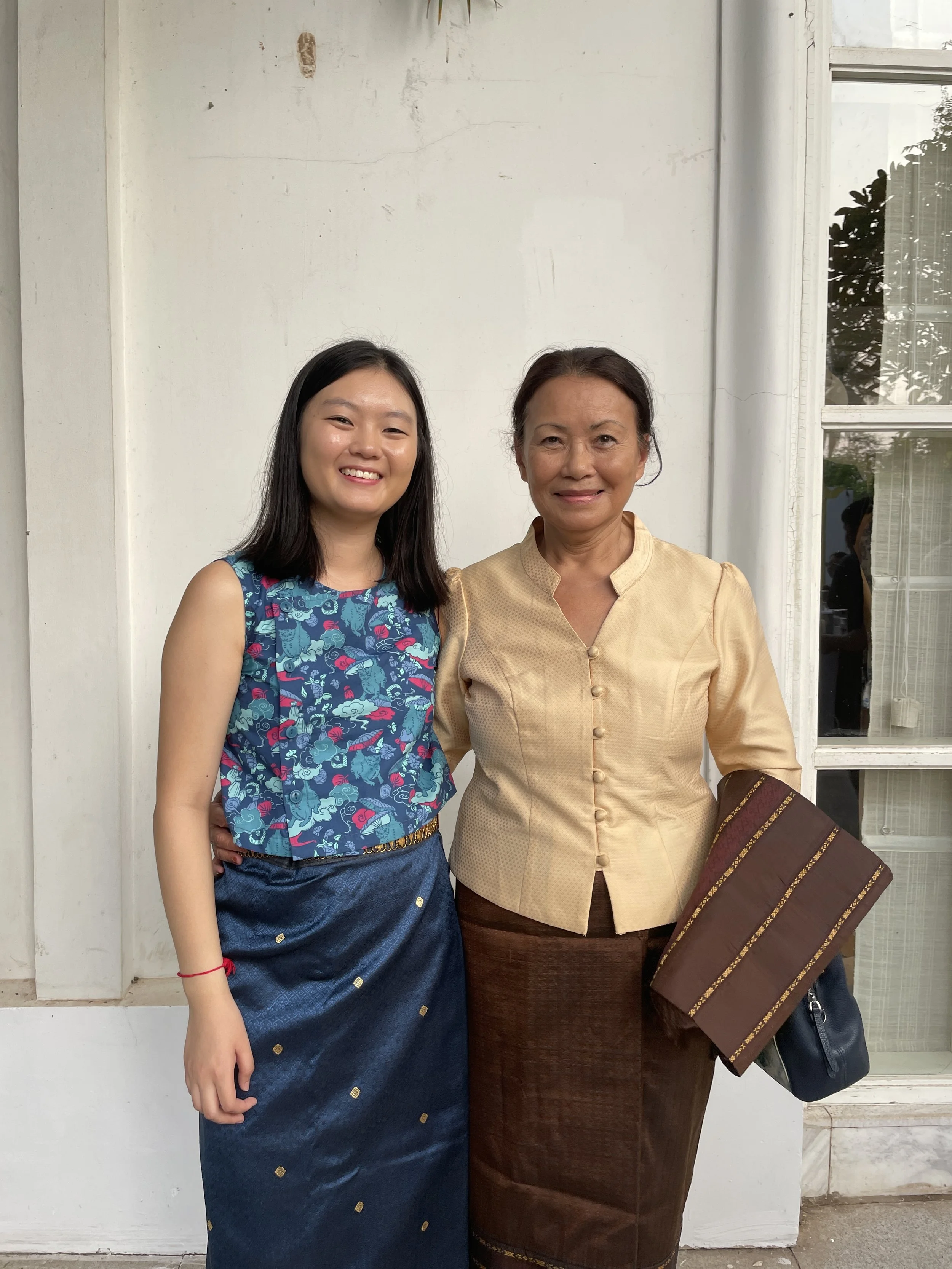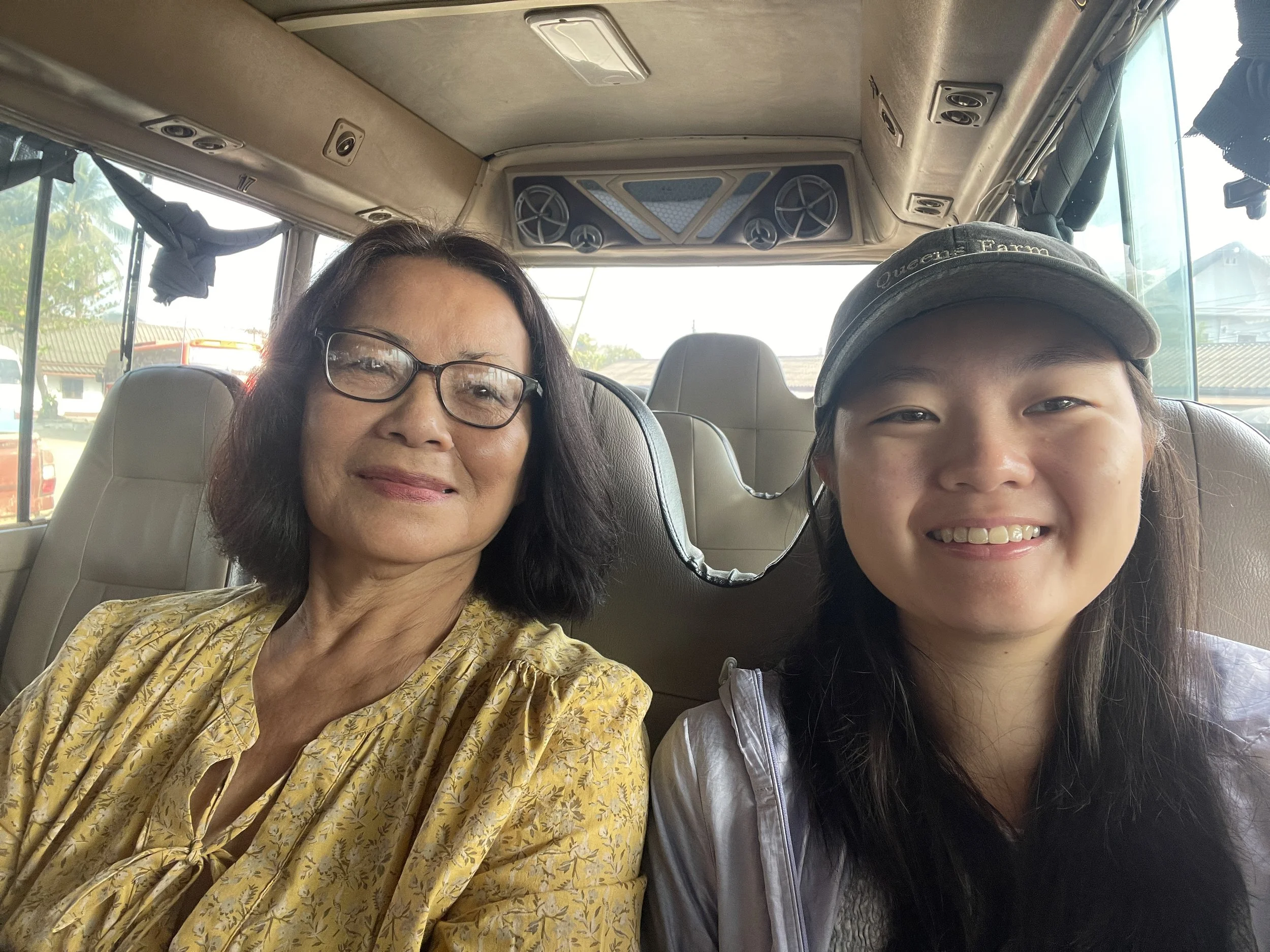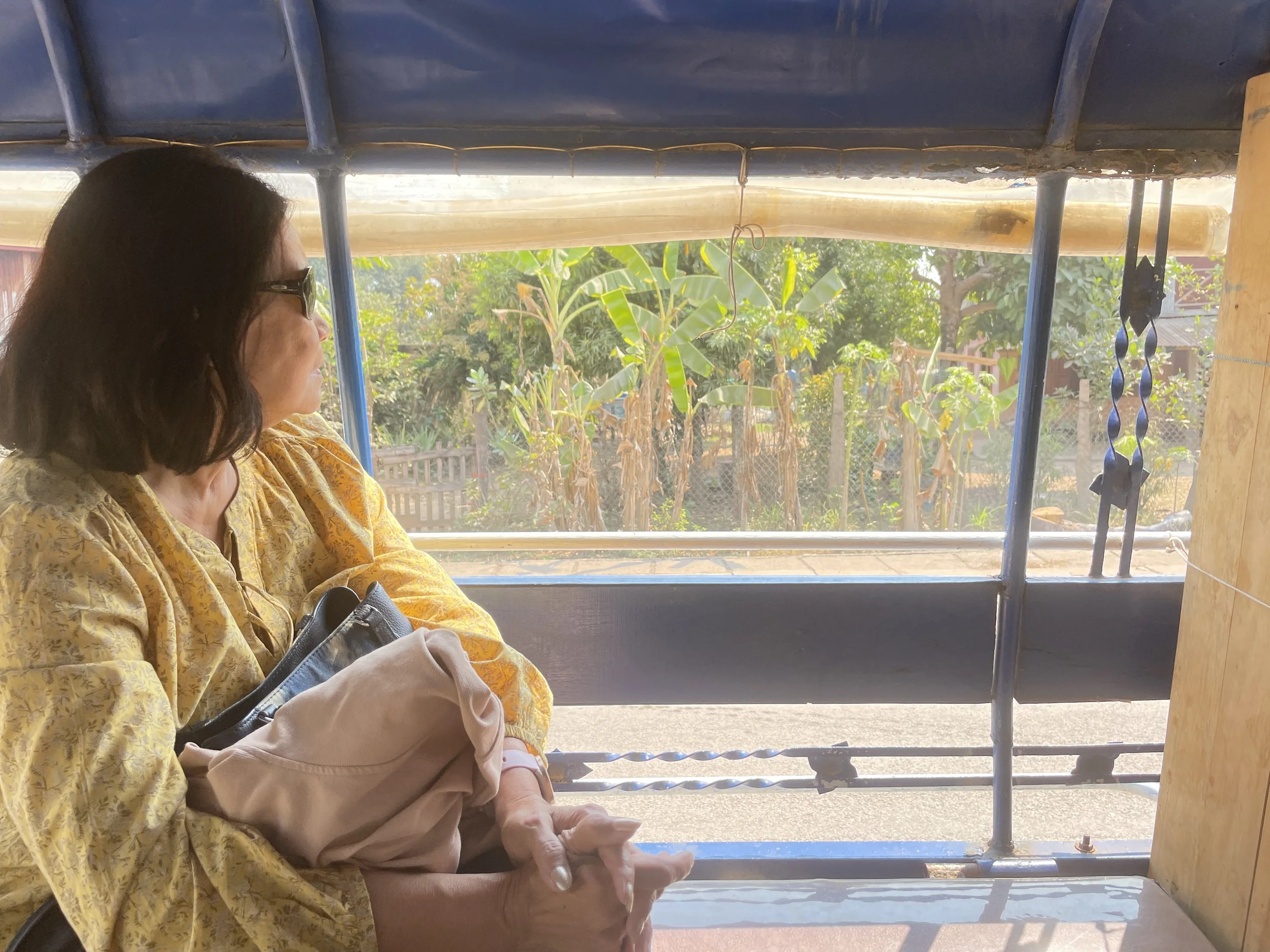Return to Xayaboury
By Caitlyn King
Caitlyn, the author, and her grandma, her Mae Tao. (Photo courtesy of Caitlyn King)
One of the lesser known cities of Laos is Xayaboury, located three hours southwest of Luang Prabang, the country’s cultural capital. Xayaboury Province is well-known as the Elephant Province because of its elephant sanctuaries and annual Elephant Festival, Boun Xang.
For me, I know Xayaboury as the place where my mom was born. In 1975, my mom’s family fled from their home country of Laos as refugees during the Vietnam War to the United States, where they were relocated to Idaho and still live today. My mom was only four years old at the time, so she has very little recollection about her time in her birthplace. I longed to learn more about my family’s history and culture before it became lost to time.
Luckily for me, this past year, I have been living in Laos as a Fulbright Fellow conducting research on Lao textiles and reconnecting with my Lao heritage. My grandma, my Mae Tao, stayed with me in Vientiane Capital for three months, and we went on many adventures together, which included traveling to Xayaboury. Our trip was the first time that my grandma returned to Xayaboury following the war 50 years ago. Neither myself nor Mae Tao believed that this homecoming would be possible. I was anxious, eager, and excited to finally put an image to the place that my Mae Tao described so vividly.
Mae Tao and Caitlyn waiting in the van ready to go to Xayaboury. (Photo courtesy of Caitlyn King)
We disembarked from Luang Prabang in the public van for a day trip. We drove over unpaved bumpy winding roads, our bodies jumped off our seats and floated in the air, and the windows opened with wind, dirt, and dust blowing into our faces and ears. I was buzzing in anticipation to arrive.
However, once we reached Xayaboury, the village Mae Tao lived, Ban Thin, didn’t appear anywhere on Google Maps, and the name didn’t ring a bell for any of the local drivers at the bus station. Nevertheless, we drove around aimlessly in the tuk tuk for an hour in hopes that Mae Tao would recognize a familiar place. We passed by roaming elephants as the city prepared for Boun Xang to celebrate the most revered animal in the country. Without much explanation, I innately felt that Xayaboury was a special place despite only being there for 10 minutes.
One of the many elephants Caitlyn and Mae Tao saw as they drove around town. (Photo courtesy of Caitlyn King)
As we rode, I watched Mae Tao’s eyes and realized that they were searching, uncertain, and lost. There was no spark of recognition in any building or landmark that we passed by. When we arrived in the general vicinity of where Ban Thin could be, I asked her if any place stood out to her. There were no large plots of trees that Mae Tao fondly recalled to me, buildings were all newly constructed, and people she knew had all passed away or moved. Xayaboury no longer bears any resemblance to how Mae Tao remembered it.
“What about this place? You lived close to the river, right? What about the lycée you attended?” I asked, in hopes that something would click, and Mae Tao would magically recollect her surroundings. Yet, I knew better that memory doesn’t easily work like that. “No, it’s all different. I don’t recognize anything. It’s ok. Let’s go back, it’s time to go back to the bus station,” she said. I quietly accepted the fact, and we waited for our van to return back to Luang Prabang.
Mae Tao and Caitlyn ride in the tuk tuk around Xayaboury. (Photo courtesy of Caitlyn King)
Subconsciously, despite my hopes, I knew that returning back to Xayaboury would be difficult for Mae Tao. I imagined what her life, my mother’s life, and my life could have been if they never moved to America. She reassured me that she was happy to return and that she gained closure on this chapter of her life. She was grateful that I brought her back; otherwise, she wouldn’t have been able to manage it by herself.
Mae Tao is an American now, and life in Laos has carried on without her. The United States is our home and where our family has built our lives, but it is tragic to know that the Laos that my Mae Tao knew no longer exists. For the diaspora, there is nostalgia and longing for the past and the ways that once were.
In celebration of the 50th anniversary of the resettlement of Southeast Asian refugees, we continue to mourn the life that could have been if my mother’s family had stayed. Southeast Asian Americans, like Mae Tao, are resilient and inspirational in their ability to power forward despite being uprooted by war. We reminisce, we preserve our culture and traditions, and we pass the stories onto the next generation. I am honored to experience Laos with my Mae Tao — to understand the country through her experiences, to create new memories with her, and to forge my own path here in Laos.
Caitlyn King is currently a 2024-2025 Fulbright Fellow in Vientiane, Laos, where she is researching textiles and working on special projects for the National Museum of Laos. She is passionate about Asian and Asian American art and hopes to uplift the voices of the underrepresented through curation.




